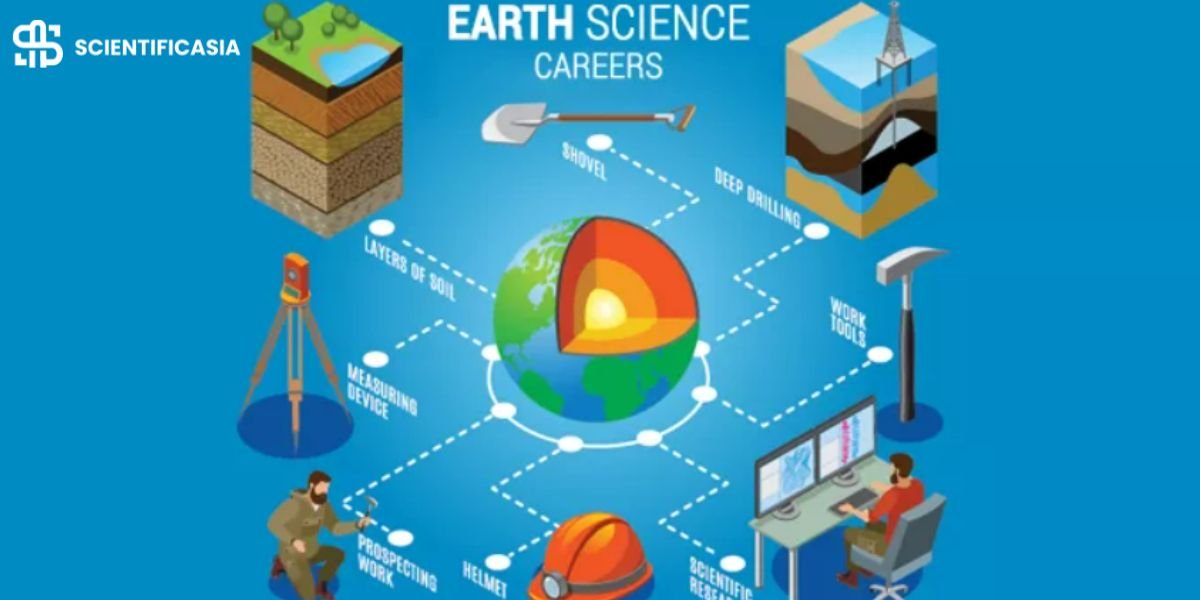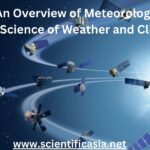Are you driven by a desire to understand the intricate workings of Earth’s systems and leverage technology to analyze and interpret this complex information? A Doctor of Philosophy (PhD) in Earth Systems and Geoinformation Sciences (ES&GIS) from George Mason University (GMU) could be the ideal path for you. This interdisciplinary program equips students with the knowledge and skills necessary to address critical environmental challenges and contribute to cutting-edge research.
What are Earth Systems and Geoinformation Sciences?
ES&GIS is a dynamic and multifaceted field that bridges the study of Earth’s interconnected systems—including the atmosphere, hydrosphere, lithosphere, and biosphere—with the powerful tools of geoinformatics. Geoinformatics encompasses technologies such as Geographic Information Systems (GIS), remote sensing, spatial analysis, and modeling, enabling us to visualize, analyze, and interpret complex spatial data. A PhD in this area prepares you to become an expert in applying these tools and concepts to address pressing issues like climate change, natural resource management, urban planning, and disaster response. GMU’s ESGS program specifically integrates geosystems, geography, geosciences, and geoinformatics, providing comprehensive training in systematic geosciences and geography, complemented by technical coursework in computational and geoinformation sciences.
Why Choose GMU’s PhD Program?
George Mason University’s PhD program in Earth Systems and Geoinformation Sciences, within the Department of Geography and Geoinformation Science, offers a distinctive and comprehensive approach to doctoral education. Here’s what sets it apart:
- Interdisciplinary Foundation: The program fosters a deep understanding of the interconnectedness of Earth’s systems, encouraging students to integrate knowledge from diverse disciplines. This interdisciplinary perspective is essential for tackling complex environmental problems.
- Cutting-Edge Research Opportunities: GMU’s faculty are actively engaged in impactful research across a range of ES & GIS domains. Students have the opportunity to contribute to this research, gaining invaluable hands-on experience and making a real-world contribution. Research strengths include areas like climate change impacts, geospatial data science, and human-environment interactions.
- Emphasis on Geoinformatics Expertise: The program emphasizes the application of advanced geoinformatics tools and techniques. Students develop proficiency in GIS, remote sensing, spatial statistics, and other critical technologies, preparing them for careers in academia, government, or the private sector.
- Diverse Career Pathways: Graduates of the program are well-prepared for a variety of career paths, including interdisciplinary research roles within academia, the public sector, or private industry.
- Flexible Scheduling Options: Recognizing the needs of working professionals, GMU’s PhD program offers flexible scheduling, accommodating both full-time and part-time students. Graduate-level courses are typically scheduled in the late afternoon and evening.
- Strategic Location: GMU’s proximity to Washington, D.C., provides students with unparalleled access to government agencies, research institutions, and numerous organizations related to Earth systems and geoinformatics. This location also facilitates valuable networking and collaboration opportunities.
Program Components:
The PhD program typically involves a blend of coursework, independent research, and professional development activities. Students will:
- Establish a Strong Knowledge Base: Core courses cover fundamental concepts in Earth systems science, geoinformatics, and research methodologies.
- Conduct Original Research: Students will design and execute their own research projects, culminating in a dissertation that contributes novel knowledge to the field.
- Develop Practical Skills: The program emphasizes hands-on training in geoinformatics tools and techniques, equipping students for real-world applications.
- Present and Publish Research Findings: Students are encouraged to present their work at conferences and publish their research in peer-reviewed journals.
- Meet Degree Requirements: A total of 72 credits are required for the PhD. Students entering with a conferred master’s degree may be eligible to transfer up to 30 credits towards this requirement, potentially reducing the total to 42 credits.
Admission Requirements:
While specific requirements can vary, generally, applicants to the PhD program in Earth Systems and Geoinformation Sciences at GMU should possess:
- Educational Background: A master’s degree in a relevant field (e.g., atmospheric science, climatology, meteorology, earth science, geology, environmental science, remote sensing, hydrology, oceanography, geography, or related discipline) is typically required. Exceptionally qualified candidates with a bachelor’s degree in these areas may also be considered. catalog.gmu.edu catalog.gmu.edu
- Mathematical Proficiency: A strong foundation in mathematics, preferably demonstrated through coursework in calculus, is highly recommended.
- Application Deadlines: For fall admission, the priority application deadline is March 15th (with a February 15th deadline for funding consideration), and the standard deadline is also March 15th. For spring admission, both the priority and standard application deadlines are November 1st. It’s crucial to consult the GMU website for the most up-to-date deadlines.
Is This the Right Program for You?
If you are a highly motivated individual with a passion for understanding Earth’s systems and a strong desire to use geoinformatics to address critical environmental challenges, then the PhD program in Earth Systems and Geoinformation Sciences at George Mason University could be an excellent fit. It’s a rigorous yet rewarding program that will prepare you to become a leader in this critical and rapidly evolving field. Visit the GMU website for the most current details regarding program requirements, faculty research interests, and application procedures. Connecting with current faculty and students is also a valuable way to gain further insight into the program and determine if it aligns with your academic and career goals.













